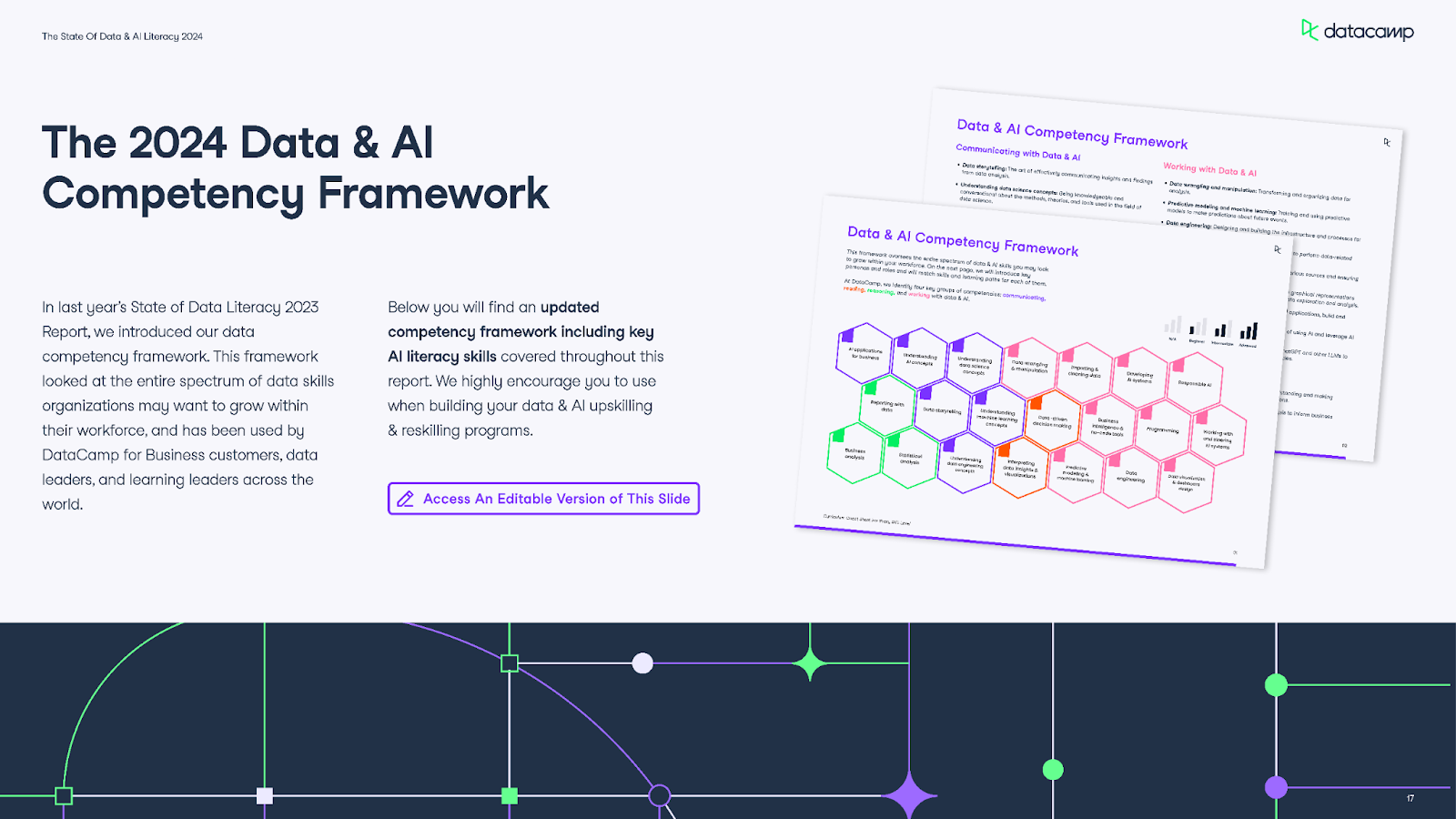Introducing The State of Data & AI Literacy Report 2024
Explore the key takeaways from the 2024 State of Data & AI Literacy report, including key statistics and opinions from data & AI thought leaders
May 2024 · 3 min read
Download the State of Data & AI Literacy Report 2024
Uncover what 550+ leaders in the US & UK believe about the state of their teams’ data & AI skills.
Download the State of Data & AI Literacy Report 2024
Uncover what 550+ leaders in the US & UK believe about the state of their teams’ data & AI skills.
Download the State of Data & AI Literacy Report 2024
Uncover what 550+ leaders in the US & UK believe about the state of their teams’ data & AI skills.
RelatedSee MoreSee More
blog
Introducing The State of Data Literacy Report 2023
Explore the key takeaways from our State of Data Literacy report, including essential stats, insights, and opinions from business leaders.
Matt Crabtree
5 min
blog
Closing the Data Literacy Gap: Key Insights from the State of Data Literacy 2023 Report
Explore the growing importance of data literacy, insights from the State of Data Literacy 2023 Report, and best practices for implementing data literacy programs.
Matt Crabtree
7 min
blog
Overcoming Top Challenges in Data Upskilling: Insights from the State of Data Literacy 2023 Report
Explore insights from the State of Data Literacy 2023 Report, revealing top challenges in data upskilling and actionable strategies to create a data-literate workforce.
Adel Nehme
8 min
blog
Why is Data Literacy Important? The Top 10 Data Literacy Stats for 2023
Discover the importance of data literacy as highlighted in the key stats from our State of Data Literacy Report 2023.
Matt Crabtree
7 min
blog
Essential Takeaways From Stanford’s AI Index 2022 Report
This article summarizes Stanford’s HAI’s 2022 AI Index Report. The report, built by leading experts in academia and business, tries to cover the advancement of AI over the last year in detail.
Anuj Syal
12 min
blog
The Future of Data Literacy: A Fundamental Skill Shaping Society
Uncover the role of data literacy in the 21st century.
Matt Crabtree
7 min
